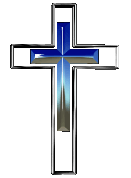There is more teaching on men and women in Genesis chapters 1 to 3 than any other single part of the Bible. Let us seek to understand these three chapters.1
Genesis 1: Created in God's Image
First an explanation: The word 'adam is used in two different ways: 'humanity' in chapter 1, and 'the man' in chapter 2. Old Testament Hebrew did not have another word for humanity. In Genesis 4:25 'adam receives a third meaning, the personal name of a man, Adam. This means God said, 'Let us make humans.' Not 'Let us make men or a man.' The confusion comes from the older English translations.
The kings of the time used to make images to mark the fact that they ruled, and Genesis 1 emphasises humans ruling creation as stewards. Plants and animals reproduce, but humans have something extra. They would rule. As the sun and moon rule day and night, so humans would rule the land. The man and woman would be stewards. 'So God said, “Let us make humankind in our image, according to our likeness; and let them have dominion over the fish of the sea, and over the birds of the air, and over the cattle...'” In Genesis 1 God makes both the man and the woman to rule.
Genesis 2: The Home, Work and Partner of the Man
Genesis chapter 2 does not contradict chapter 1, but focuses less on the cosmos and more on the human family.
'adam here still means 'the man', who here receives the task of working the ground, and naming the creatures as part of understanding them and putting them into order. There was no indication that men were created before women to take authority. (In the Old Testament inheritance depended on God's blessing, not on being born first.) In Genesis 2 God gave responsibility to both man and woman. In the greater details of chapter 2, God gave responsibility over the animals, but God did not ask the man to rule over the woman. Besides, if being created earlier proves anything, God created the animals before the man!
The word 'helper' (Genesis 2:18) has also caused much debate. Some interpretation claims a helper means a person with less authority. This ignores the Bible evidence that the word 'helper' often means God helping a person (e.g. Genesis 49:25). This cannot be a lesser person.
Some say that when the man named the woman he was in authority over her. This does not fit the text, which in fact declares that they are of the same kind. He says she is, 'Bone of my bone and flesh of my flesh (Genesis 2:23).
On Marriage
The first meaning of Genesis 2:24 was not that ancient Israel was matriarchal (the man leaving his parents' house), nor to justify marriage (that is assumed in the Bible). The verse shows that, though God separated man and woman at creation, they are reunited in marriage. It is not about one being higher than the other. It certainly remains good advice today.
Genesis 3:1-13
The snake made its approach to Eve. Some argue, because of the belief that men make the decisions, that Eve did wrong in making a decision on how she would act without asking her husband to make the decision for her. If that were intended to be part of the story, it is never stated. Instead, verse 6 makes clear her husband was beside her, 'and she also gave some to her husband, who was with her.'
Some say God questioned the man first because he was more responsible. No verse up to this point has said he is more responsible, and God needed to question the man and the woman separately to make clear whether each was guilty. Each laid blame elsewhere, on the woman and on the snake. Sin had broken the harmony between the man and woman.
Genesis 3:14-20: Judgments, not Curses
God did not 'curse' the man or the woman. God 'cursed' the earth and the snake.
People get from Genesis 3:16 at least two arguments that have since been shown to be unproven:
-that this is the beginning of pain in childbirth,
-and that women are subordinate to their husbands.
It is perfectly possible that woman's increased toil (Hebrew 'itsabon) in verse 16 is not the labour of giving birth but increased toil in producing food along with the husband. In verse 17 the man's increased work is also 'itsabon. The reading could be 'I will greatly multiply your hard work and your childbearing.' It is optional from the Hebrew whether the next phrase should be 'with toil you will bear children,' or 'with pain...'
In Genesis 3:16b 'and he shall rule over you,' is a statement of what will happen, not of what should happen. The result is loss of harmony between husband and wife, while they have extra work with thorns and thistles.
Genesis 3:21-24: Expelled as Punishment
If the Garden of Eden was earlier a sanctuary with God, and a place for the couple to have easy communication with God, they no longer have that advantage. They would no longer be present with God at all times. Worship, while still possible, would require separate and additional time of rest before God. It is the collapse of the harmonious function of male, female and God, and of life without struggle and pain.
Conclusion
The first three chapters of the Bible show men and women equally made in God's image, equally valued, equally responsible for their actions, and so equally punished when they fail. In what God first planned, there is no concept that one should have authority over the other. That a man imposes domination is a sad result of the failure of both. It is not an ideal but a reality, like.
1Much of this article is summarised from Richard S. Hess in Discovering Biblical Equality, ed. Ronald Pierce and Rebecca Merrill Groothuis, with Gordon Fee, Intervarsity Press, Downers Grove, 2004, Pp 79-95
The
Christian Counter


